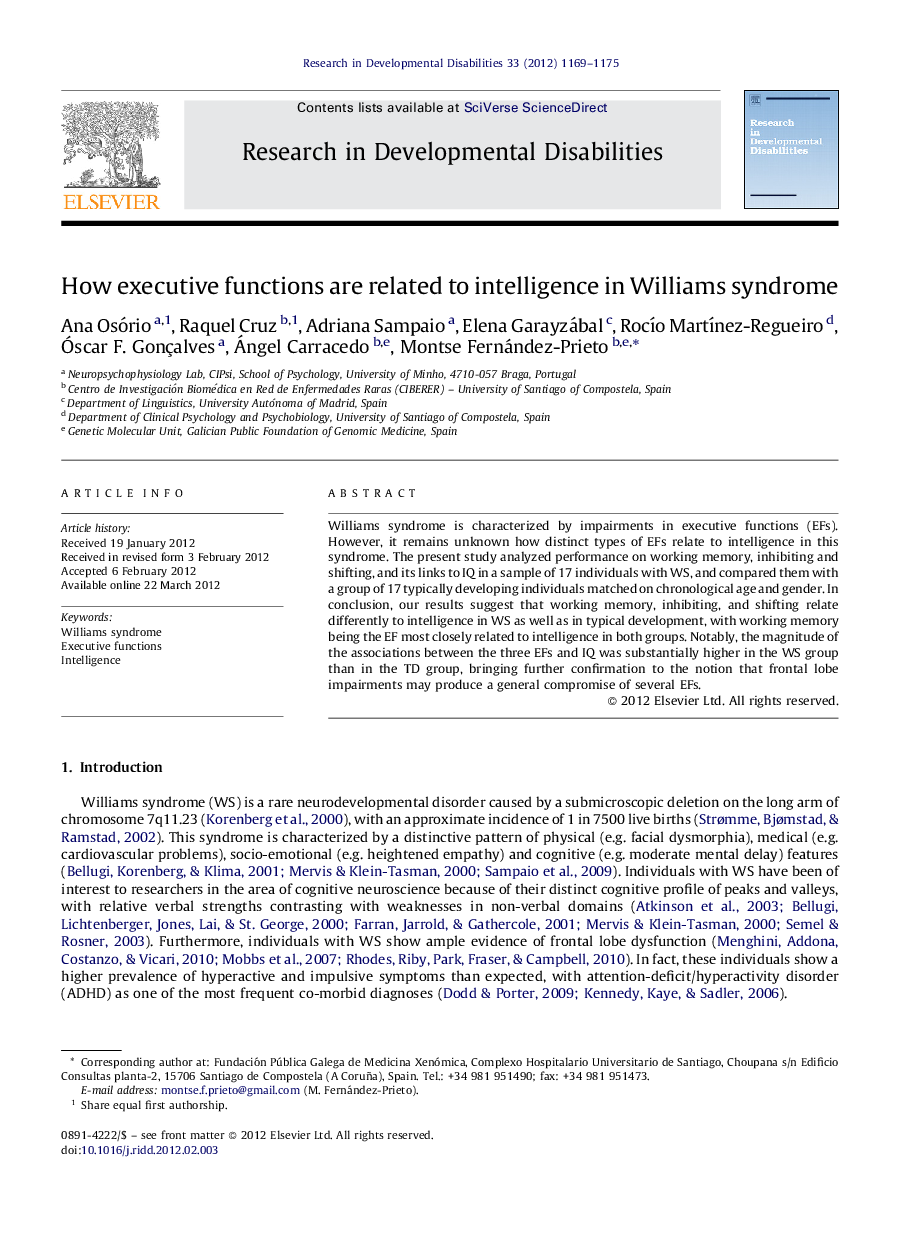| Article ID | Journal | Published Year | Pages | File Type |
|---|---|---|---|---|
| 371592 | Research in Developmental Disabilities | 2012 | 7 Pages |
Williams syndrome is characterized by impairments in executive functions (EFs). However, it remains unknown how distinct types of EFs relate to intelligence in this syndrome. The present study analyzed performance on working memory, inhibiting and shifting, and its links to IQ in a sample of 17 individuals with WS, and compared them with a group of 17 typically developing individuals matched on chronological age and gender. In conclusion, our results suggest that working memory, inhibiting, and shifting relate differently to intelligence in WS as well as in typical development, with working memory being the EF most closely related to intelligence in both groups. Notably, the magnitude of the associations between the three EFs and IQ was substantially higher in the WS group than in the TD group, bringing further confirmation to the notion that frontal lobe impairments may produce a general compromise of several EFs.
► Working memory, inhibiting, and shifting relate differently to intelligence in Williams syndrome as well as typical development. ► Working memory was the EF most closely related to intelligence in both groups. ► Further confirmation that frontal lobe impairments may produce a general compromise of several EFs in WS.
